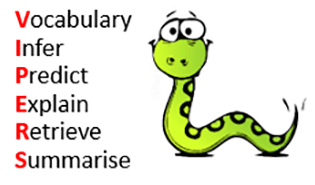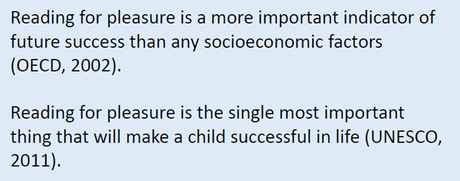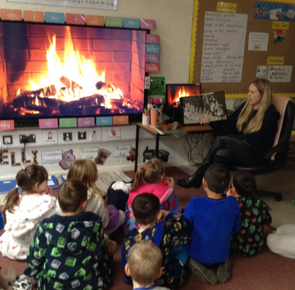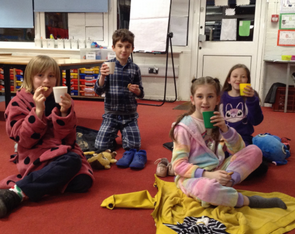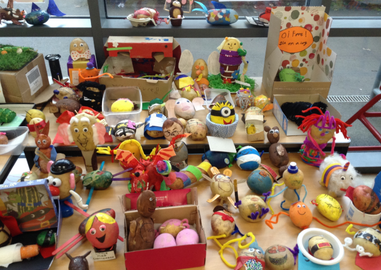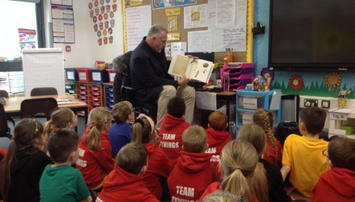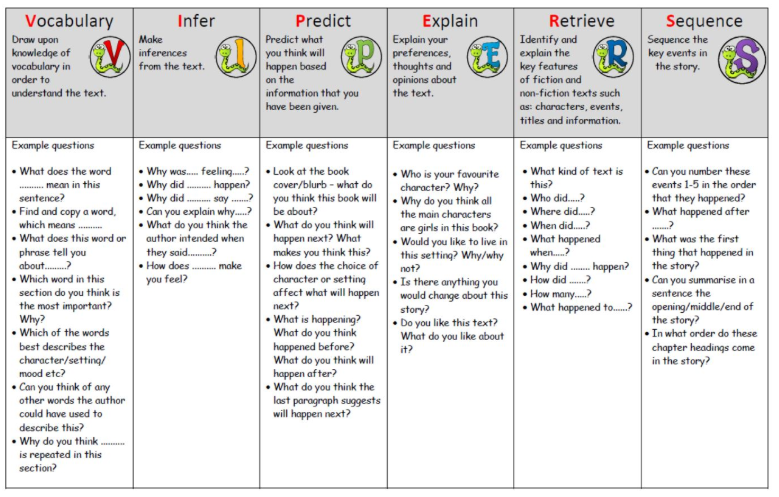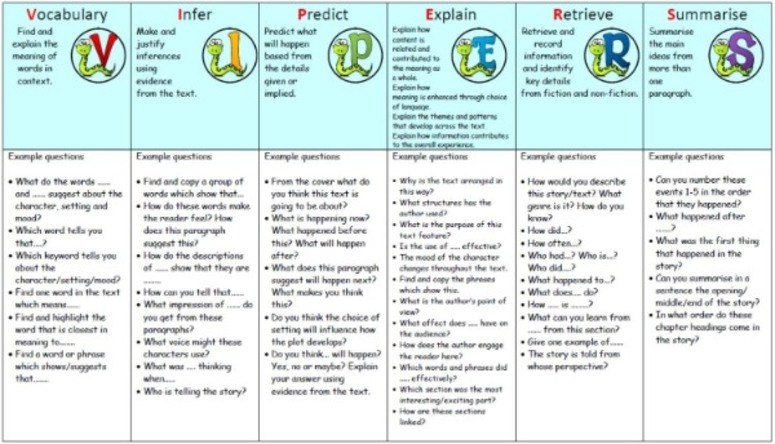At the Tynings, we use a whole class approach to teach reading using high quality texts. We use VIPERS to ensure all comprehension skills are regularly taught, practised and applied using a range of activities including drama to show a deeper understanding of the text. Each classroom will have the Reading VIPERS displayed in the reading area of their classroom and the class teacher will make explicit links to the skill the children will be learning about. This gives all children across the school a common language to discuss their reading knowledge and understanding. We have daily dedicated reading time across the school, every day. In all classes, on at least three days of the week, the children end the day with story time.
Reading for Pleasure
We wish to create a community of readers that share, enjoy and promote reading as a skill and desirable past time. We have introduced several initiatives to encourage and promote a ‘Reading for pleasure’ culture for both children and adults within school. All staff at the Tynings are purposefully positive about reading and share that view with children as much as possible!
Our reading areas within our classrooms are welcoming and inviting and offer a breadth of reading material.
With the help of our Year 5 Reading monitors, we have set up an outdoor library where all children are able to access a range of reading material at playtimes so that Reading for pleasure is able to continue outside of the classroom.
In our weekly newsletter, you will see book recommendations from children and staff.
We believe that every day should be a celebration of books and reading but we especially celebrate the pleasure of reading on World Book Day each year.
World Book Day – Thursday 5th March 2020
We celebrated our love of reading by inviting children to transform a potato into a story character; celebrated an author’s work in each class and ended the day with children returning to school for bedtime stories next to a ‘fire’ with a hot chocolate.
Enjoying a hot chocolate whilst listening to a bedtime story
Amazing collection of potato story characters – can you spot who they are?
Councillor Ian Boulton (mystery reader) reading to Year 2
- Reading cafes and Stay and Reads
Reading cafes are held once a term (see school calendar for dates) and Stay and Reads every Friday morning (8:45 – 9:10). Parents, grandparents and carers are invited into class to share reading with their child. There is a welcoming and vibrant atmosphere where reading is celebrated.
Reading Rangers
We have a dedicated team of trained Reading Rangers who volunteer at the Tynings and listen to readers on a 1:1 basis. They promote our mantra of being purposefully positive.
How you can support reading at home
To encourage regular home reading (aim for five times a week), which is crucial in helping children build accuracy, fluency and a love of reading, we send home a Reading Record.
Our reading incentive means that once children have been heard 30 times, they will receive a certificate. For 50 reads, they will earn a bookmark. For 100 reads, they will be invited to choose a brand new book from Mrs Haydon’s vast collection.
Tips for reading at home with your children:
- Excite your child with the front cover of their new book. Discuss what you can see and predict what you think might happen inside!
- Vocabulary- If your child comes across an unfamiliar word, discuss it, look it up in a dictionary and try to use it in daily conversation!
- It’s important that you hear your child read at least 5 times per week but it is also important to read to your child. They may really want to engage in books that they are not yet able to decode!
- Children learning to read benefit from reading the same book more than once: first read, support your child to decode; second read, develop their comprehension skills and third , encourage your child to read with fluency and expression.
- Find somewhere comfortable to read together.
- Look at the pictures- Why are they important? What are they telling you?
- HAVE FUN! Don’t be afraid to act out scenes or use funny voices.
Questioning is really useful when reading with your child. Please see below for the types of questions you could ask your child:
KS1 Questions
KS2 Questions







